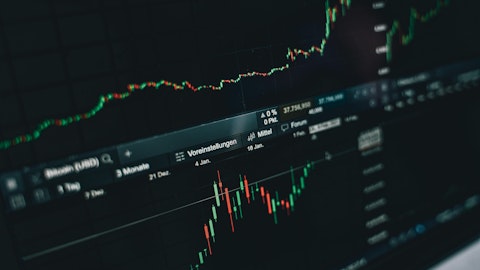The digital marketing landscape is evolving at breakneck speed, driven by a wave of emerging technologies that promise to redefine how brands connect with consumers. As businesses compete for attention in an increasingly crowded online space, understanding the tools and trends shaping 2025 is crucial for investors, marketers, and industry leaders alike. Here’s a deep dive into the innovations set to transform digital marketing strategies in the coming year.
How Artificial Intelligence Is Reshaping Campaigns
Artificial intelligence (AI) has moved from buzzword to business essential, with applications that now touch every aspect of digital marketing. In 2025, AI-powered tools are expected to deliver even greater personalization, predictive analytics, and automation. Marketers are leveraging machine learning algorithms to analyze vast datasets, segment audiences with precision, and optimize ad spend in real time. This not only boosts campaign ROI but also enhances the customer experience by delivering content tailored to individual preferences and behaviors.
Investors seeking to capitalize on the AI revolution should consider the top AI stocks 2025, which are highlighted based on hedge fund activity and year-to-date performance, offering valuable insights into promising companies driving artificial intelligence growth. The integration of AI into marketing platforms is also enabling more sophisticated chatbots, dynamic pricing, and advanced image recognition, all of which are set to become standard features for forward-thinking brands.
Building Data Privacy and Consumer Trust
With the rise of data-driven marketing comes increased scrutiny around privacy and security. Regulatory changes and growing consumer awareness are pushing companies to adopt transparent data practices and invest in secure technologies. In 2025, brands that prioritize ethical data collection and clear communication about how information is used will stand out in the marketplace. Consent management platforms, privacy-first analytics, and zero-party data strategies are gaining traction, allowing marketers to build trust while still delivering personalized experiences.
This shift is also prompting a reevaluation of traditional tracking methods. As third-party cookies phase out, businesses are turning to first-party data and contextual targeting to maintain relevance. The result is a more balanced approach that respects user privacy without sacrificing marketing effectiveness, positioning trust as a key differentiator in digital engagement.
Expanding Omnichannel Engagement and New Platforms
The proliferation of digital touchpoints means that successful marketing strategies in 2025 must be truly omnichannel. Consumers expect seamless experiences across social media, search, email, messaging apps, and even emerging platforms like augmented reality (AR) and voice assistants. Marketers are investing in unified customer data platforms (CDPs) to orchestrate interactions and measure performance holistically.
Industries across the spectrum are embracing these technologies to reach diverse audiences. For example, the expansion of online entertainment and adjacent sectors has driven demand for advanced marketing solutions tailored to specific regions. In Australia, businesses ranging from retail to specialized online services are leveraging SEO and digital advertising to capture market share. A notable illustration is how platforms such as online casinos australia employ cutting-edge marketing tools to engage consumers and stay competitive in a dynamic digital environment.
Automation and the Growth of No-Code Tools
Automation is streamlining everything from content creation to campaign management. No-code and low-code platforms are democratizing access to sophisticated marketing technology, enabling teams of all sizes to launch, test, and iterate campaigns without heavy reliance on IT resources. This agility is especially valuable in fast-moving markets, where speed and adaptability can make the difference between leading and lagging behind.
Automated email workflows, AI-driven content generators, and smart scheduling tools are just a few examples of how marketers are working smarter, not harder. These innovations free up time for strategic thinking and creative problem-solving, empowering brands to respond quickly to market shifts and consumer trends.
What to Expect in a Dynamic Future
As 2025 unfolds, the intersection of technology and marketing will continue to present both challenges and opportunities. Staying ahead requires a commitment to ongoing learning, experimentation, and a willingness to embrace change. By understanding and investing in the right mix of AI, data privacy, omnichannel engagement, and automation, businesses and investors can position themselves for success in a rapidly evolving digital world. The future of digital marketing is bright for those ready to harness the power of emerging technologies and adapt to the ever-changing needs of the online consumer.





